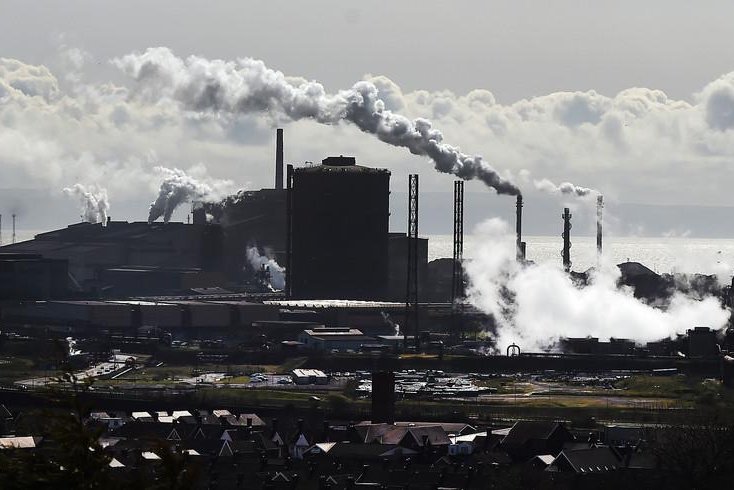The Office for National Statistics said Tuesday Britain recorded zero GDP growth in the three months ending in October. File Photo by Andy Rain/EPA-EFE
Dec. 10 (UPI) -- The British economy continues to struggle, showing zero growth over the three months up to and including October, the government said Tuesday in the final monthly economic report before Thursday's elections.
The rolling average of GDP growth during August, September and October was 0.0 percent, as was the October stand-alone figure, according to a report released by the Office for National Statistics -- revealing an economy that barely avoided qualifying as a recession in the lead-up to the parliamentary elections.
The economic flatline is the lowest three-month period recorded in Britain since early 2009. The country narrowly avoided a recession during the third quarter, which is classified by two consecutive quarters of contraction. The British economy contracted by 0.2 percent in the second quarter and posted 0.3 percent growth in the third.
The hardest-hit sectors were manufacturing and housing construction. Production fell by 0.7 percent during the three-month span with widespread declines across several manufacturing industries, while the construction industry tumbled by 2.3 percent in October alone.
The lackluster three-month GDP performance followed third quarter growth figures of only 0.3 percent, while year-over-year growth slowed to 0.7 percent in October -- the lowest rate of GDP growth since March 2012.
"The U.K. economy saw no growth in the latest three months," the report said. "There were increases across the services sector, offset by falls in manufacturing with factories continuing the weak performance seen since April.
"Construction also declined across the last three months with a notable drop in house building and infrastructure in October."
The numbers Tuesday cover a period during which Britain faced the prospect of leaving the European Union without an agreement, as well as a more general global economic slowdown.
John McDonnell, the Labor Party's shadow chancellor, blamed the economic woes on uncertainty over the EU exit and the Conservative Party's government policies.
"We can look forward to five more years of economic failure and stagnation if the Conservatives win the election," he said in a statement.















